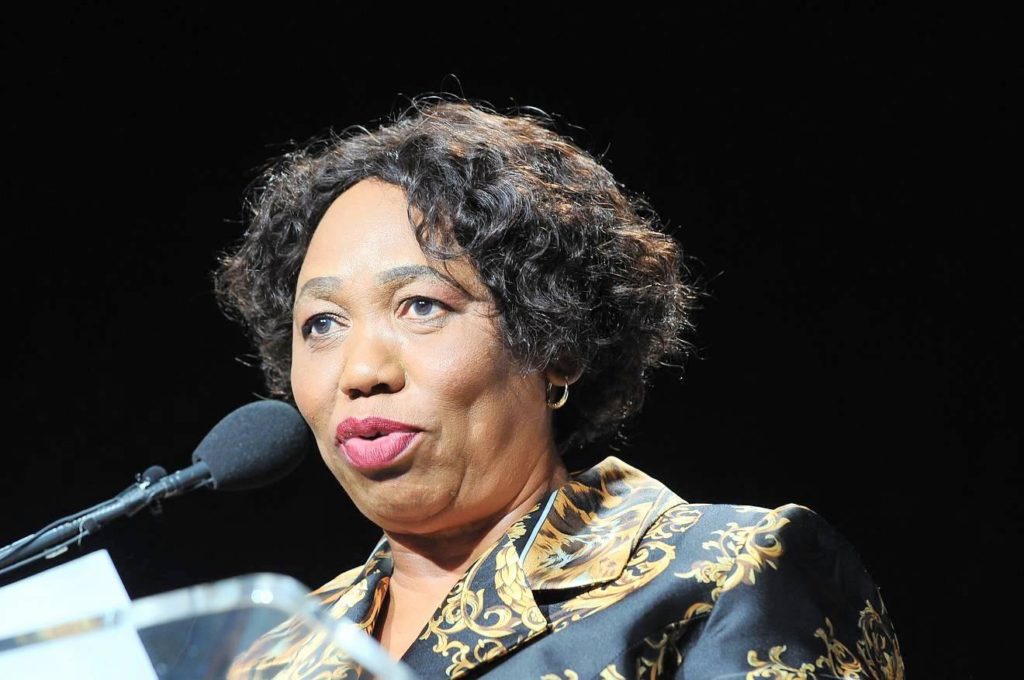Mixed reactions to going back to school

Minister of basic education Angie Motshekga. Picture: Karen Sandison/African News Agency(ANA)
There have been mixed reactions from caution to anxiety to minister of basic education Angie Motshekga’s announcement that the phased reopening of schools across the country will start on June 1, with grade 7s and 12s returning first.
All independent and public schools will reopen, and all learners, educators and support staff would receive orientation and training at the start of the school reopening term. The minister also revealed that the revised school calendar would be gazetted soon, with indications of term opening and closing dates.
She added that in order to ensure time recovery while adhering to health protocols, the department would be using innovative methods to meet health, safety, social and physical distancing requirements. “It has become clear that the coronavirus has forced us to re-engineer the basic education system. We expect the roles of the school principal and school management team (SMT) to assume the overall responsibility of the day-to-day running of the schools. They are expected to put measures in place for equitable allocation of periods or time for teachers to cover the scope of the curriculum in saving the academic year,” said Motshekga.
Ahead of the announcement, Motshekga met with the Council of Education Ministers (CEM) to consider the state of readiness for the reopening of schools. It was noted that progress had been made in schools receiving some Covid-19 essentials such as hand sanitisers, masks, water and sanitation resources, with more supplies scheduled to reach schools before the reopening.
However, the National Professional Teachers’ Organisation of South Africa (Naptosa) is not convinced with the minister’s assurance that the necessary PPE, detergents and sanitisers would reach schools on time. The union expressed its concern that the KZN department of education would not have capacity to ensure deliveries to the more than 6 000 schools in the province before May 25, the day when teachers and principals return to schools.
“KZN must plan extensively to undertake the mammoth task of readying schools for teachers and learners. Naptosa has accepted the assurances of the minister with trepidation and we will closely monitor the planning and implementation. We are also concerned that many learners share textbooks and the minister was also silent on this,” said Naptosa provincial chief executive officer, Thirona Moodley.
Meanwhile, the Congress of South African Students (Cosas) National Task Team believes that many government officials do not show a clear understanding of the threat of Covid-19 infections in schools, especially those in the townships. “We have a report from our regional structures that indicates that there are already teachers infected with the virus, and we trust that the department will put in measures to ensure that if learners return to class, teaching and learning will not be interrupted due to a shortage of teachers,” said Cosas in a statement.
The minister’s address has also caused concern among parents all over the country, with many feeling anxious about sending their children back to school.
A Cape Town mother of a grade 7 learner feels the minister was arrogant and reckless in her address and says as a mother, she is not ready to send her child back to school. “I have tried my level best to keep my daughter safe indoors and have been pumping her immune system with immune boosters. But I don’t know what her peers have been up to during this time. Although my daughter is ready, as she misses her friends and being outdoors, my fear is what if she brings this virus home? We live with my mum, who is 73-years-old and has an underlying condition (pneumonia). What if she gets infected?”
A concerned KZN parent expressed her concerns about how children would practise physical distancing. “I am concerned about how children will manage physical distancing in the classroom – even if it’s just for one grade, such as grade 7, there are probably five classes of about 30 learners per class. I am also concerned about the children who take public transport to school. I’m sure their parents are terrified to put their kids on these forms of transport, but what other choice do they have.”



